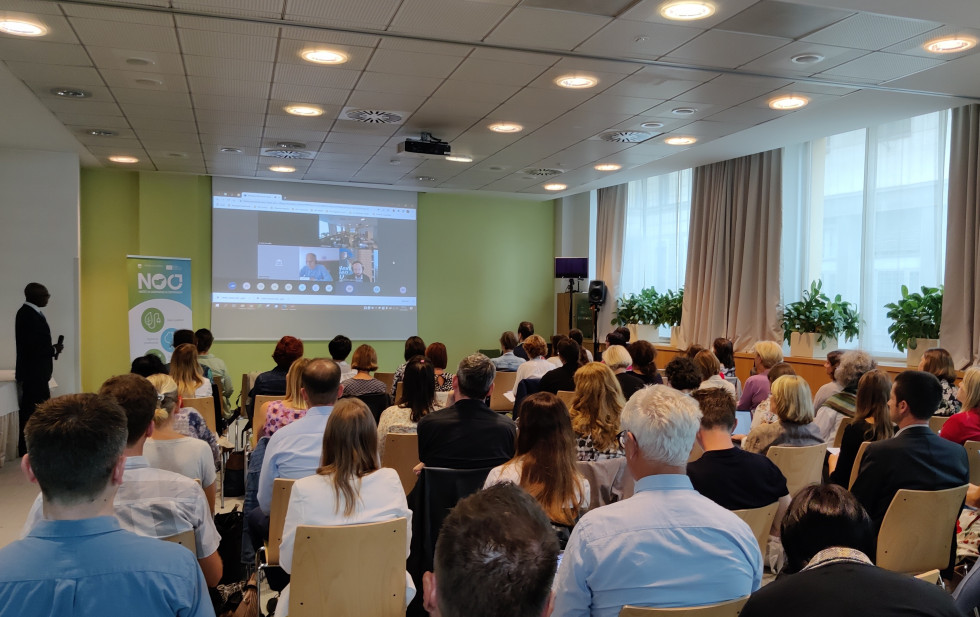Compliance with the ‘do no significant harm’ principle in the implementation of the Recovery and Resilience Plan
The Director of the Office for Recovery and Resilience, Josip Mihalic, greeted participants and stressed the importance and relevance of broad knowledge of the application of the ‘do no significant harm (DNSH) principle in achieving green objectives.
In accordance with the DNSH principle, no investment or reform set out in a plan may do significant harm to any of the six defined environmental objectives. Those objectives are: climate change mitigation, climate change adaption, sustainable use and protection of water and marine resources, pollution prevention and control, transition to a circular economy, and protection and restoration of biodiversity and ecosystems.
When submitting their recovery and resilience plans, Member States must also submit to the European Commission a preliminary assessment of compliance with the aforementioned principle for each measure in its plan, including both investments and reforms. In addition to enhancing digitalisation, the promotion of the green transition is a key objective of the Recovery and Resilience Facility. In addition to the DNSH principle, the green aspect of recovery is reinforced by the requirement that at least 37% of funds for investments and reforms in each national recovery and resilience plan must be earmarked for the achievement of climate goals. The Slovenian plan earmarks 42.5% of total funds for that purpose.
Erato Panayiotou from PwC presented legislation, guidelines and rules regarding compliance with the DNSH principle, and the approach for assessing that compliance. She also presented key findings from reviewed cases of projects in Slovenia and other Member States, and described how to approach the implementation and monitoring of the principle. The speaker, as well as representatives of the European Commission’s Joint Secretariat for Recovery and Resilience and the Office for Recovery and Resilience, were available for answers and clarifications.
The seminar was organised in hybrid form, and was attended by more than 150 representatives of various ministries and those responsible for the implementation of measures, as well as other stakeholders.
General Technical Support for the Implementation of Slovenia’s Recovery and Resilience Plan – presentation


